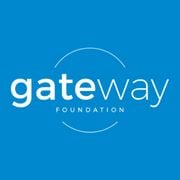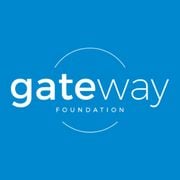Center for Addictive Problems
Drug Rehab Center in Chicago, Illinois
- Substance Abuse
- Opioid Addiction
- Alcoholism
The Center for Addictive Problems in Chicago specializes in treating alcoholism, substance abuse, and opioid addiction through two levels of care - detox and outpatient - using group therapy as their main method of treatment, and is accredited by SAMHSA and accepts private health insurance.
About Center for Addictive Problems in Illinois
The Center for Addictive Problems is located in Chicago, IL and specializes in the treatment for Alcoholism, Substance Abuse, and Opioid Addiction. Their services consist of two levels of care, detox and outpatient. The team of experienced professionals use group therapy as their main method of treatment to ensuring that their clients’ exact needs are met.
In addition to its group therapy, the Center for Addictive Problems is accredited by SAMHSA and accepts private health insurance. This business is dedicated to providing quality treatment while constantly staying informed on the most recent industry practices and trend. As the center continues to expand and serve the community, it is committed to providing excellent care and support to those struggling with substance abuse and addiction.
Genders
Ages
Modality
Additional
Accreditations
SAMHSA
Conditions and Issues Treated
Substance Abuse Treatment is important when getting sober, as it helps addicts learn the skills they need to live a clean life. There are many different kinds of recovery treatment, including but not limited to medication-assisted therapy, behavioral therapeutic approaches, self-help groups, and counseling. Each treatment has its benefits that help addicts recover.
Counseling can help addicts learn the skills they need to live sober lives. It can be used to treat underlying mental health issues, like depression or anxiety, that could lead to relapse. Counseling can also help people find work, deal with family problems, and learn to manage living without drugs.
With so many people addicted to opioids, we need to help those who want to quit. The cycle begins when opioid addicts take opioids for a painful injury. When someone starts taking their medication differently or in excess, it means they’re addicted and at risk of overdosing.
In , detoxing from these types of treatments is the most effective way to beat this. Most facilities begin with medical assistance and then provide counseling services; rehabilitation follows after successful treatment.
Levels of Care Offered
This center offers a variety of custom treatment tailored to individual recovery. Currently available are Detox, Outpatient, with additional therapies available as listed below.
Detox is an integral part of recovery and often very hard. Detoxification is the process of letting the body remove the drugs in it. It addresses the physical aspect of addiction. Detox from drugs can be unsafe as the patient undergoes withdrawal symptoms that range from headaches, vomiting, body aches to seizures and cardiac arrests. The main purpose of detox is to keep the drug users comfortable as the drugs leave their system.
Quitting cold turkey is not recommended and can lead to many issues. Detox is best done under medical supervision so that a team of experts can monitor the side effects and complications. Detox, alone, does not guarantee sobriety as the underlying psychological issues are not addressed.
Alcohol or drug addiction, or co-occurring disorders, are treated in an outpatient program. The patient must attend therapy and other programs at the facility but can return home each night.
Outpatient treatment allows recovering addicts to live at home while receiving addiction treatment. Outpatients can attend group sessions for a few hours per week. Outpatients may also continue to work full time and study/attend school without interruption if they choose.
Therapies & Programs
Attending group therapy at Center for Addictive Problems in , is a useful way for those seeking sobriety to realize they aren’t the only one going through it.
This is when a group of people on different recovery phases get together and talk about what they’re going through, their triggers, successes, and failures. This can include alternative types of therapies too! Group therapy may occur on an outpatient or inpatient basis with groups that have no pre-existing relationships outside the session, unlike support groups where everyone already knows each other beforehand.
Payment Options Accepted
For specific insurance or payment methods please contact us.
Is your insurance accepted?
Ask an expert, call (888) 674-0062
Additional Details
Specifics, location, and helpful extra information.
Chicago, Illinois 60654 Phone Number(312) 266-0404 Meta DetailsUpdated November 25, 2023
Staff Verified
Center for Addictive Problems Patient Reviews
There are no reviews yet. Be the first one to write one.
Chicago, Illinois Addiction Information
In 2016, more than 2,350 Illinoisans died from drug overdoses. More than 5,500 deaths annually occur in Illinois due to the abuse of alcohol and other drugs. 7.17% of Illinois residents reported using illicit drugs in the past month (2018). Substance abuse costs the state approximately $3.5 billion every year.
Drug misuse can lead to other serious health problems, including HIV/AIDS or hepatitis C infection and liver disease. Chicago's main drugs of abuse include heroin, cocaine, and methamphetamine. Field sobriety tests can be used to determine if someone is driving under the influence of drugs or alcohol. There are about 872 drug treatment centers in the city, and the number of people seeking help for addiction continues to rise.
Treatment in Nearby Cities
- Saint Charles, IL (34.8 mi.)
- Marshall, IL (173.0 mi.)
- Vernon Hills, IL (29.4 mi.)
- Lansing, IL (23.2 mi.)
- Homer Glen, IL (25.6 mi.)
Centers near Center for Addictive Problems


The facility name, logo and brand are the property and registered trademarks of Center for Addictive Problems, and are being used for identification and informational purposes only. Use of these names, logos and brands shall not imply endorsement. RehabNow.org is not affiliated with or sponsored by Center for Addictive Problems.

